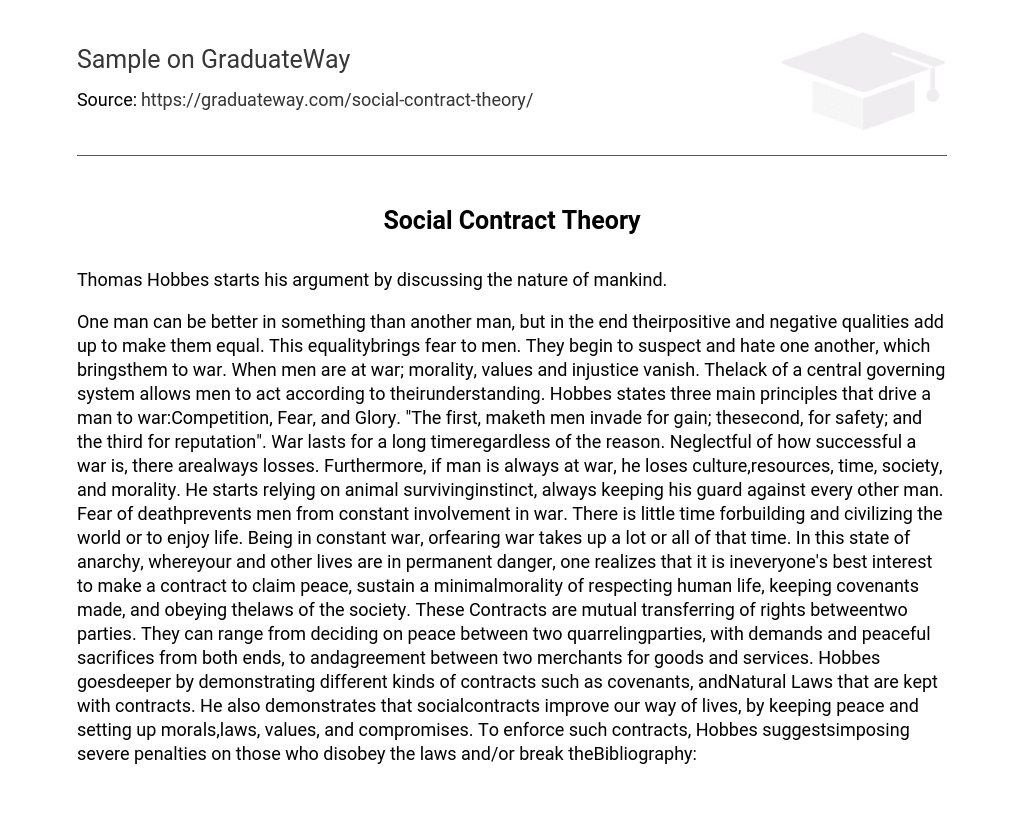Thomas Hobbes starts his argument by discussing the nature of mankind.
One man can be better in something than another man, but in the end theirpositive and negative qualities add up to make them equal. This equalitybrings fear to men. They begin to suspect and hate one another, which bringsthem to war. When men are at war; morality, values and injustice vanish. Thelack of a central governing system allows men to act according to theirunderstanding. Hobbes states three main principles that drive a man to war:Competition, Fear, and Glory. “The first, maketh men invade for gain; thesecond, for safety; and the third for reputation”. War lasts for a long timeregardless of the reason. Neglectful of how successful a war is, there arealways losses. Furthermore, if man is always at war, he loses culture,resources, time, society, and morality. He starts relying on animal survivinginstinct, always keeping his guard against every other man. Fear of deathprevents men from constant involvement in war. There is little time forbuilding and civilizing the world or to enjoy life. Being in constant war, orfearing war takes up a lot or all of that time. In this state of anarchy, whereyour and other lives are in permanent danger, one realizes that it is ineveryone’s best interest to make a contract to claim peace, sustain a minimalmorality of respecting human life, keeping covenants made, and obeying thelaws of the society. These Contracts are mutual transferring of rights betweentwo parties. They can range from deciding on peace between two quarrelingparties, with demands and peaceful sacrifices from both ends, to andagreement between two merchants for goods and services. Hobbes goesdeeper by demonstrating different kinds of contracts such as covenants, andNatural Laws that are kept with contracts. He also demonstrates that socialcontracts improve our way of lives, by keeping peace and setting up morals,laws, values, and compromises. To enforce such contracts, Hobbes suggestsimposing severe penalties on those who disobey the laws and/or break theBibliography:





